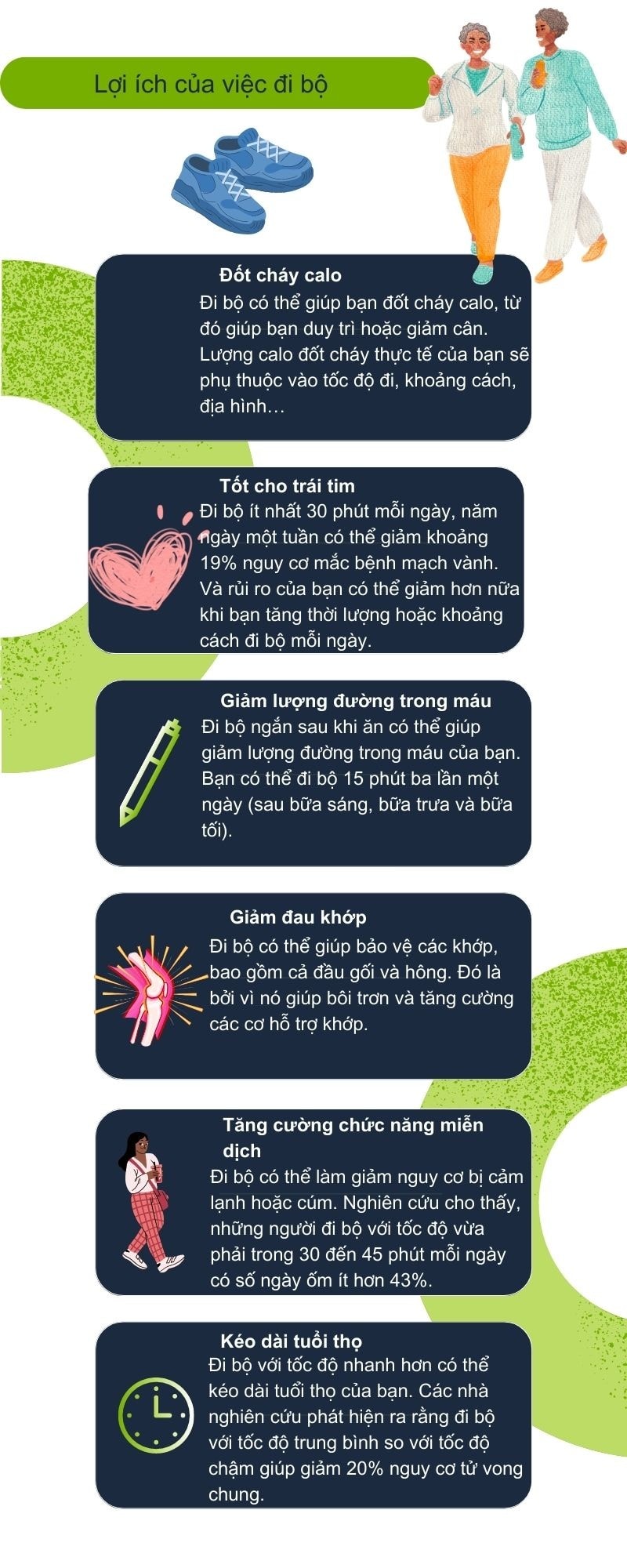Does walking speed predict heart health?
Research shows that people who regularly walk briskly tend to have fewer heart problems than those who just stroll. One study linked faster walking speeds with a 34% lower risk of heart failure.
Walking speed and your heart
A growing body of evidence has shown the many health benefits of daily walking, from improving heart health to boosting metabolism to combating stress and anxiety.
According to Cleveland Clinic cardiologist Ashish Sarraju, MD, the theory of walking speed and heart health reflects a basic truth about heart health: overall fitness and strength levels can help predict heart disease risk.
The ability to walk faster is a sign of fitness and healthy muscle mass, says Dr. Sarraju. It’s a measure of strength, like any other physical activity. That makes walking speed a useful measure of cardiovascular and overall health.

Brisk walking could be an indicator of your future heart health. Photo: Shutterstock
“If your fitness and activity levels are high, your cardiovascular health tends to be better. Walking speed can reflect that effect,” he shares.
Another potential benefit of tracking your pace? If you start walking slower than before or feel like you're struggling to do things that used to come easily, it could be a subtle symptom of a larger problem.
“Think of walking as a stress test you can do every day. If you notice changes, that can help your doctor know something is going on with your health,” Dr. Sarraju suggests.
The big picture of heart health
Cardiovascular exercise is important, but there are many different factors that affect your heart health.
For example, the foods you eat also make a difference in how your heart and cardiovascular system functions. Eat healthier foods and your blood will flow better through your body. On the other hand, eat lots of donuts and cheeseburgers and your organs will become clogged.
Smoking can also damage your heart. So can drinking too much alcohol. Avoiding both can help keep your heart beating healthy.
“There are many factors that affect heart health. It’s not just about trying to reach a certain walking pace so nothing bad happens, it’s about trying to do the best you can every day in all of these areas to protect your heart,” Dr. Sarraju notes.
Importance of activity
There's a new saying going around: Sitting is the new smoking. It's a quick way to emphasize that a sedentary lifestyle can contribute to a long list of health problems, including heart disease.
That's why the American Heart Association recommends at least 150 minutes of moderate-intensity, heart-pumping exercise a week to keep your heart healthy. Brisk walking is classified as moderate-intensity activity.
Unfortunately, only about 1 in 5 adults and teens regularly meet that weekly exercise goal. Dr. Sarraju says walking could be a good way to reverse that trend.
You should also talk to your doctor before starting an exercise routine, especially if you have any existing health problems. They may even give you an exercise prescription to work with an exercise physiologist to design a program.
"Moving more is better than moving less," Dr. Sarraju emphasizes. "And once you get up and walk a little, you may find yourself pushing yourself harder and getting stronger in the process. You'll see and feel progress."
And your heart will be better for it.
The physical benefits of walking
According toTodayMany systems in the body can benefit from walking. Walking can help:
- Improve cardiovascular health and function.
- Increase aerobic capacity, using oxygen for metabolism to create energy when running.
- Improve blood pressure.
- Control blood sugar and reduce the risk of diabetes.
- Enhance metabolism.
- Maintain weight.
- Reduce the risk of osteoarthritis.
- Maintain mobility.
The U.S. Department of Health and Human Services recommends 150 to 300 minutes of moderate-intensity physical activity a week. So a brisk 30-minute walk five days a week will put you at the low end of that range.
If you are walking to control or lose weight, you will probably want to go for longer walks. You should walk for 45 to 60 minutes most days. However, you do not have to walk all at once; you can walk for 30 minutes in the morning and walk for 20 minutes after dinner.
Research shows that an average walking speed of 3-4.8km/h is associated with a 15% lower risk of type 2 diabetes than those who walk at a leisurely 3km/h or about 60 steps per minute regardless of distance covered.
Choosing a fairly fast walking speed of 5-6.5 km/h or 80-120 steps per minute will help reduce the risk of diabetes by 24%. Walking fast at a speed of 6.5 km/h or faster (more than 120 steps per minute) has a 39% lower risk./.






